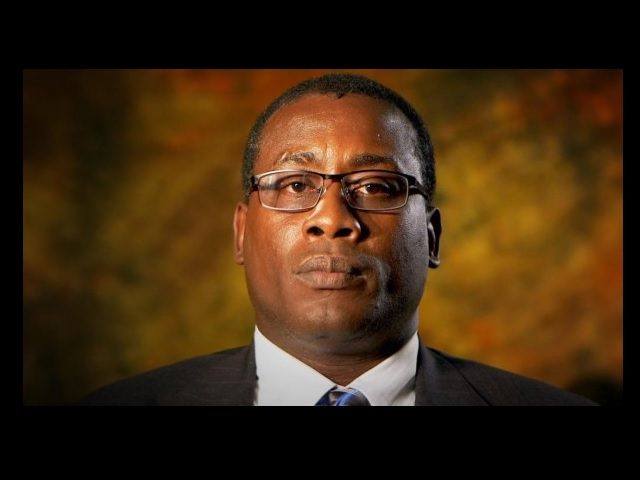Cuba’s political police arrested prominent anti-communist dissident Jorge Luis García Pérez, known popularly as “Antúnez,” on Wednesday after summoning him to a state immigration office.
His wife says police told her he was banned from leaving the country due to his association with members of the Cuban exile community, which the officer referred to as “terrorists.”
Antúnez spent 17 years in prison, from 1990 to 2007, for protesting Fidel Castro’s communist regime. He has been an active dissident since his release as the national secretary of the National Front of Civic Resistance Orlando Zapata Tamayo (Frente OZT). Orlando Zapata Tamayo was a fellow political prisoner who died of a hunger strike in 2010.
Antúnez has been a staunch opponent of the Democratic “normalization” policy begun by President Barack Obama during his tenure. In June 2017, President Donald Trump invited Antúnez as one of many prominent opponents of the Castro regime welcomed as guests to an event in which Trump announced a full reversal of Obama-era policies towards the island’s government.
Antúnez’s arrest is the latest in a series of crackdowns on dissident leaders under “president” Miguel Díaz-Canel, the current figurehead of the Castro regime who remains outranked by the leader of the Communist Party, Raúl Castro. Some sympathizers of the regime have argued that Díaz-Canel’s ascent from vice president to president would signal a softening in policies against dissidents, a shift that has yet to occur.
According to a press release published by the Cuban exile non-profit advocacy group the Cuban Democratic Directorate, Antúnez was arrested Wednesday morning after appearing with wife Magaly Rivaflecha at a scheduled appointment with the Cuban Immigration Department in Placetas. The family has been struggling to exist legally following the birth of their daughter last year in the United States, during a visit Rivaflecha made to Miami. The Cuban government denied the one-year-old, Alejandra Pérez, citizenship despite its longstanding policy that Americans born in America of Cuban parents are to be treated as if they only possess Cuban citizenship, meaning they cannot appeal to the U.S. embassy in Havana for help. The government is fining the parents a fee for every day that their daughter is with them in the country, but has banned both parents from leaving.
“I want to call for the solidarity of the international community and let them know that my husband is being unfairly tried for demanding respect for the rights of the Cuban people, for the freedom of our nation,” Rivaflecha said in a statement to the Cuban Democratic Directorate. Speaking to the U.S.-based Martí Noticias, Rivaflecha explained that authorities at the immigration office told her “he is not allowed to leave the country because of his association with terrorists” in Miami, likely including groups like the Cuban Democratic Directorate. The Castro regime refers to active anti-communist voices in the Cuban exile community as “terrorists.”
Antúnez has yet to be charged with a crime and is believed to be held in a jail in Santa Clara, central Cuba. Rivaflecha told Martí Noticias that she believes his arrest is a result of Antúnez’s repeated calls for justice in the case of Alejandro Pupo Echemendía, who was beaten to death by Cuban police.
Cuban authorities have restricted Antúnez’s movements for months. In November, authorities denied him a visa to the United States, where he was invited to speak before the International Commission for the Litigation of the Crimes Against Humanity of the Castro Regime, a group organizing a criminal case against Castro leadership to bring before the International Criminal Court (ICC). He was most recently in Miami in October to present his memoir, Chronicles of Prison, where he details the tortuous treatment he received during his 17 years in prison. He was previously present for President Trump’s 2016 announcement of a reversal of Obama’s pro-Castro policies introduced in 2014.
“These agreements are considered by a vital segment of the Cuban resistance to be a betrayal of the aspiration for the freedom of the Cuban people. They are unacceptable for us,” Antúnez said of Obama’s policies at the time.
The Cuban regime has also made it illegal for mothers to name their children after Antúnez, as Yudeici Rondón Villavicencio found out in 2013 when she attempted to name her son Jorge Luis Antúnez. State police reportedly beat her while she held her child in a Camagüey hospital.

COMMENTS
Please let us know if you're having issues with commenting.